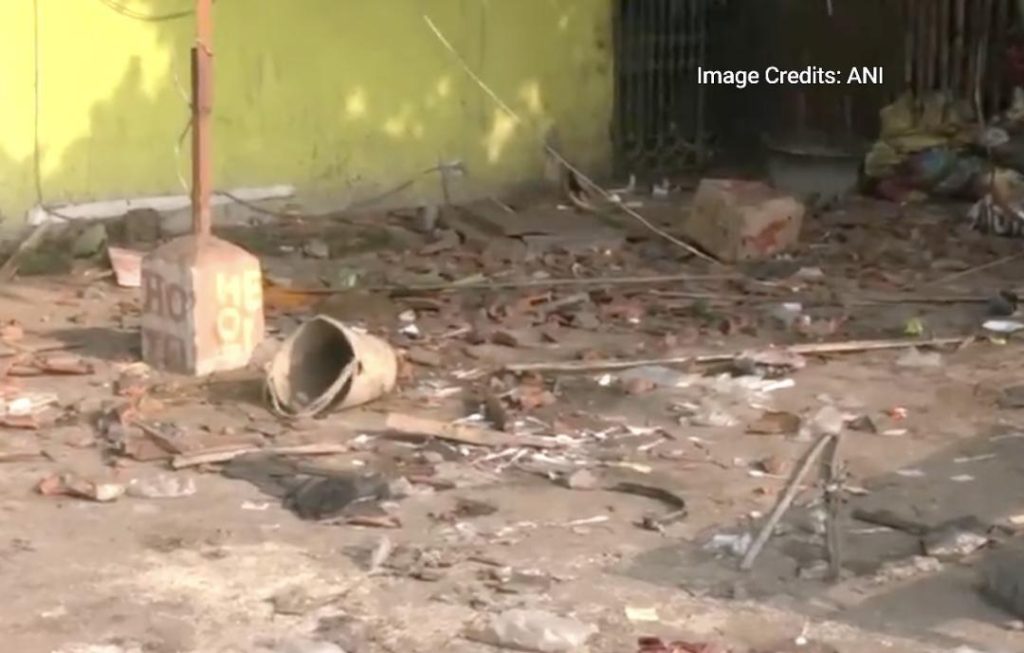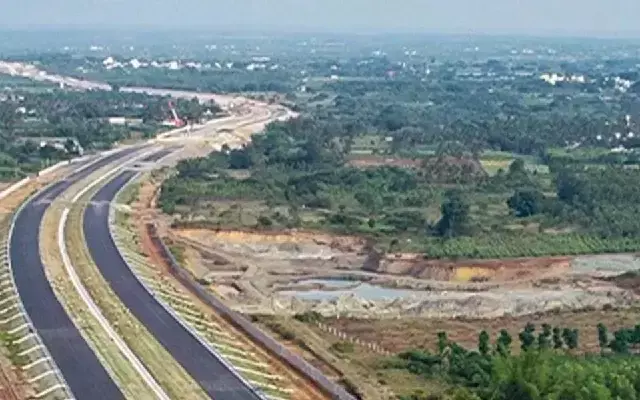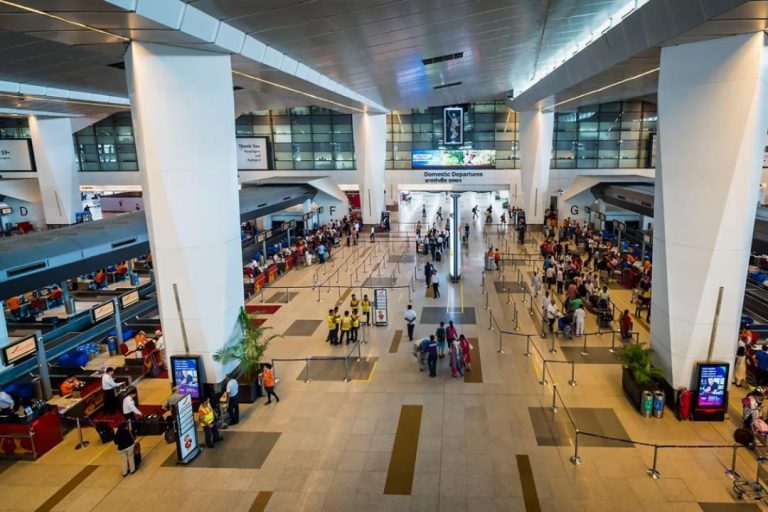
Title: 5,000 Disrupt Services & Pelt Stones at Bengal Railway Station During Protest Against Waqf Act
The ongoing protests against the Waqf Act in West Bengal have taken a violent turn, with nearly 5,000 people disrupting train services and pelting stones at the Dhulianganga railway station on Friday. The incident has raised concerns about the safety of passengers and the efficiency of the railway network in the region.
According to reports, the mob gathered at the station around 1 pm and started stone pelting, causing significant damage to the property. The protesters, who were allegedly demanding changes to the Waqf Act, also disrupted the movement of the Kamakhya-Puri Express, one of the most popular trains in the region.
A guard at the station, who wished to remain anonymous, described the scene as chaotic and destructive. “Many things were destroyed, and the signal couldn’t be passed,” he said, adding that the protesters were “very aggressive” and “refused to listen to reason.”
The disruption caused by the protesters had a ripple effect on the entire railway network, with several trains being delayed or diverted. The Eastern Railways spokesperson said that the situation was brought under control after a team of police officers and railway officials were dispatched to the station.
The protests against the Waqf Act have been ongoing for several weeks, with activists and religious leaders demanding changes to the law. The Act, which was passed in 2013, aims to regulate the management of Waqf properties, which are Islamic charitable endowments.
However, critics of the Act have argued that it is biased towards Muslims and does not take into account the interests of other religious communities. The protests have been condemned by the ruling Trinamool Congress government, which has accused the opposition parties of trying to create communal tension.
The incident at the Dhulianganga railway station is the latest in a series of violent protests that have taken place in West Bengal over the past few weeks. The state has been plagued by political unrest and violence in recent years, with the ruling government facing criticism for its handling of the situation.
The Waqf Act has been a contentious issue in West Bengal, with both supporters and opponents of the law holding protests and rallies in recent weeks. The situation has raised concerns about the stability of the state and the potential for further violence.
In a statement, the Eastern Railways said that the protesters had disrupted train services and caused damage to the property. “The situation was brought under control after a team of police officers and railway officials were dispatched to the station,” the statement said.
The incident has also raised concerns about the safety of passengers, who were forced to wait for several hours before the situation was brought under control. The railway authorities have promised to take action against the protesters and to ensure that the situation does not recur in the future.
The protests against the Waqf Act are a reminder of the deep-seated tensions that exist in West Bengal, where religious and political differences are often used to create divisions and stir up tensions. The incident at the Dhulianganga railway station is a stark reminder of the need for calm and restraint, particularly in times of political and social unrest.
In conclusion, the incident at the Dhulianganga railway station is a stark reminder of the need for calm and restraint in times of political and social unrest. The protests against the Waqf Act have raised concerns about the stability of the state and the potential for further violence. The government and the opposition parties must work together to find a solution to the crisis and to ensure that the situation does not recur in the future.






